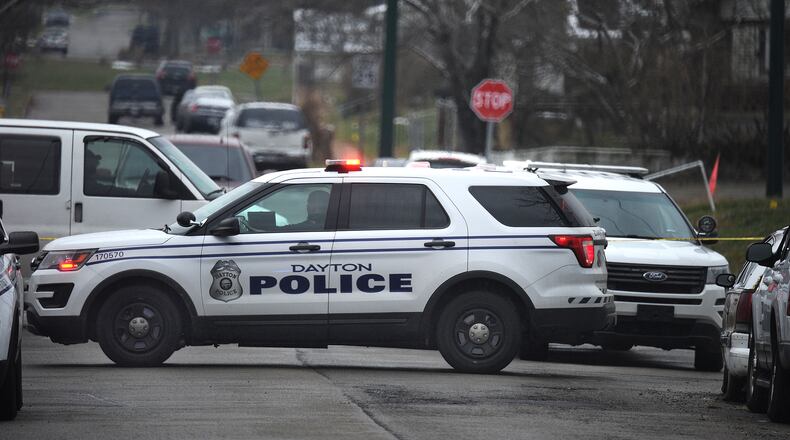Group members say they are concerned that some honest candidates are failing the test because it is subjective, stressful and unscientific and not because they deserve to be disqualified.
Dayton police officials say the polygraph has helped obtain important information they would not have otherwise received.
This includes admissions from candidates about crimes they committed that were not discovered during their background checks and fantasies they have about violent and criminal behaviors, like killing people and sexually assaulting kids and family members.
“Some people have admitted to stealing thousands of dollars of things,” said Dayton police Sgt. Joe Heyob, who is on the police reform committee focused on recruitment. “I can’t count how many times I was on the street and I was in possession to check into the property room thousands and thousands of dollars. We can’t risk putting that sort of liability on citizens.”
The Dayton Police Department uses the polygraph test to screen police candidates.
The process is intrusive and uncomfortable but the vetting tool helps determine if candidates have things in their past or traits that should prevent them from becoming cops, said Sgt. Heyob.
During polygraph tests, police candidates have admitted drug use, crimes and employment issues not reflected on their background reports, Heyob said.
Candidates have admitted to rape, theft, drug dealing and having fantasies about using kids as target practice, being aroused by young family members and letting suspects go in exchange for sexual favors, he said.
In the last three years, the police department has administered 270 polygraph tests, Heyob said, and 25% of test-takers showed significant reactions possibly indicating deception and made some admissions.
About 9% showed reactions without admissions, he said, and overall 93 people provided information that the department did not have prior to the interviews.
Nearly all candidates who showed significant reactions or possible signs of deception during their polygraph interviews were not hired, according to civil service and city officials.
The Dayton Police Department’s polygraph test asks a specific question about “extremist” ideology and whether candidates are involved in hate groups, subversive groups, street or motorcycle gangs, protests and espionage and sabotage, officials say.
But recruitment reform group members say they want the test to include questions that probe racial animus and authoritarian beliefs and tendencies.
“I believe it’s about weeding out people who are racist who want to have power over people of color ― that’s the interest of the polygraph for me,” said Dayton Mayor Nan Whaley, who is co-lead of the recruitment group.
Whaley said she wants some “guardrails” for use of polygraph tests to make it a more fair process, especially for candidates from diverse backgrounds.
“Just having one guy in the police department (administering the tests) ― I just want to say that I am not comfortable with that,” she said.
Credit: Jim Noelker
Credit: Jim Noelker
Recruitment committee members say some candidates may show a physiological reaction because they are generally nervous or anxious about the polygraph process, similar to how some people find visiting the doctor or dentist stressful.
A reaction, they say, may have nothing to do with deception, meaning candidates are being rejected unfairly.
The accuracy of polygraph tests is disputed, and some officials say they get people to admit misdeeds because the test-takers think they work.
One reform recommendation under consideration is moving polygraph tests from the police department to a neutral site, because committee members think that could make the setting and experience less stressful.
The reform group is considering recommending the police department add more polygraphists, including women or minority test-administrators if possible, and offering an appeals process applicants can use if they fail.
Some reform committee members support getting rid of the polygraph entirely because they think the tests are unreliable.
But other members say the tests help determine if candidates are unfit to wear a badge.
Travis Dunnington, a committee member, says the science behind polygraphs is questionable, but the polygraph process seems to get candidates to reveal and confess things they would otherwise be able to hide, which helps keep “power-hungry” racists and other people with troubling views off the police force.
“I do not want to lose diverse candidates to this process, but the reason for this process is to make candidates uncomfortable enough to say stuff they don’t want to say,” he said.
About the Author



